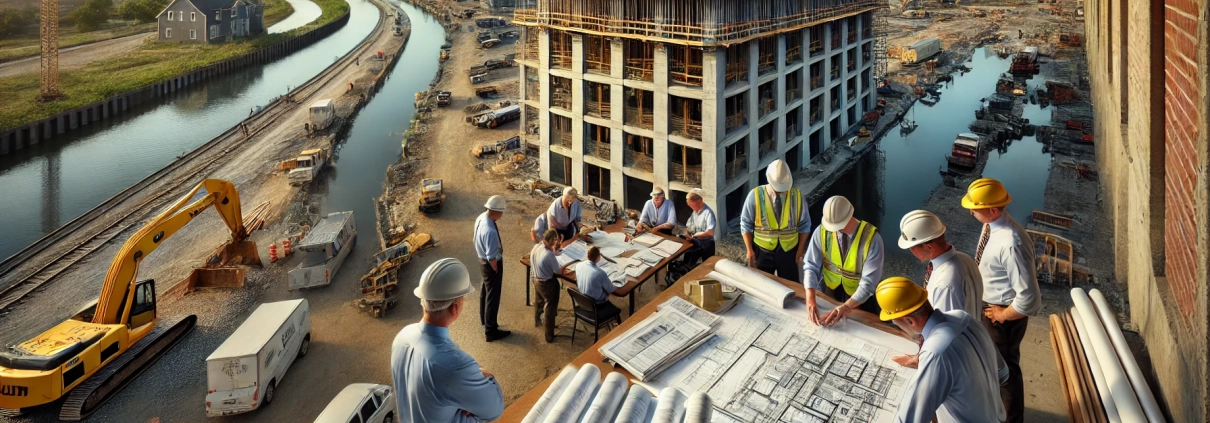Civil Engineer
Civil engineers are responsible for supervising the design and construction of multiple types of infrastructure, including roads, sewage treatment systems, bridges, waterways and multiple other projects. Civil engineers must ensure that a project adheres to all applicable construction laws, environmental regulations, or any other applicable statutes.
Putting ‘Civil Engineer’ in Context
Scenario:
Crescent City Realty Partners, a real estate development firm based in New Orleans, Louisiana, is undertaking an ambitious mixed-use development project called The Bayou District Center. This project is located in an up-and-coming neighborhood just outside the central business district, where Crescent City Realty Partners has identified significant potential for revitalization. The development includes 250 market-rate multifamily units and 40,000 square feet of ground-floor retail space designed to attract both residents and local businesses.
Given the complexity of the site and the city’s unique environmental challenges—such as its proximity to water bodies and below-sea-level elevation—Crescent City Realty Partners contracts Bayou Engineering Services, a prominent civil engineering firm in the region, to handle the civil engineering aspects of the project.
Role of the Civil Engineer:
A senior civil engineer from Bayou Engineering Services is assigned to the project. Their primary responsibilities include designing and overseeing the construction of the infrastructure that supports The Bayou District Center. This includes planning the stormwater management system to prevent flooding, designing the roadways and sidewalks within the development, and ensuring that all utility connections (water, sewage, electricity) are efficiently integrated into the overall project design.
The civil engineer must also ensure that the project adheres to New Orleans’ stringent construction and environmental regulations. Given that New Orleans is prone to heavy rainfall and is situated below sea level, special attention is paid to the drainage and water management systems. The civil engineer proposes an innovative underground retention system that can handle excess stormwater, a critical feature in a city known for its flooding risks.
Additionally, the civil engineer collaborates with Crescent City Realty Partners and the architectural team to ensure that the design of the infrastructure is not only functional but also enhances the aesthetic appeal of the development. The roadways and pedestrian paths are designed to encourage walkability, a key selling point for potential residents and retail tenants.
Challenges and Solutions:
During the initial site analysis, the civil engineer identifies that the soil composition is not ideal for traditional foundation systems due to its high clay content. To address this, they recommend a deep foundation system that can support the weight of the structures and prevent future settling. This solution is more expensive upfront but critical for the long-term stability of the buildings.
Furthermore, the civil engineer must navigate the challenges posed by the site’s proximity to the Mississippi River. To prevent potential water intrusion, they design a levee reinforcement system around the property, ensuring that The Bayou District Center is protected from any future flooding events.
Outcome:
The civil engineer’s expertise is crucial to the successful development of The Bayou District Center. Their careful planning and innovative solutions help Crescent City Realty Partners mitigate risks associated with the challenging site, ensuring that the project is completed on time, within budget, and in compliance with all local regulations. The Bayou District Center becomes a landmark development in New Orleans, attracting residents and businesses, and setting a new standard for mixed-use developments in the city.
Click here to get this CRE Glossary in an eBook (PDF) format.

